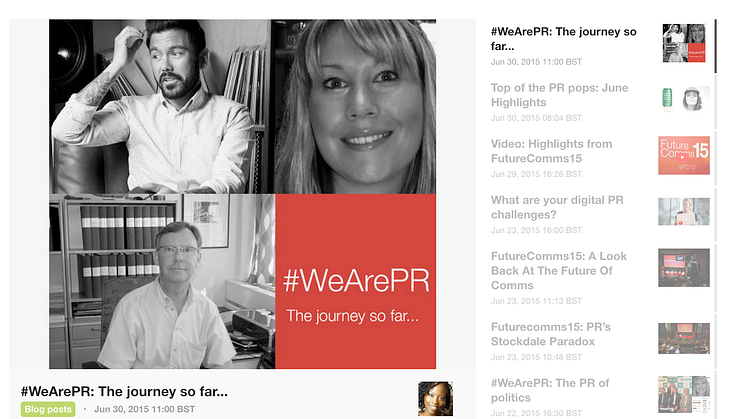
Blog post -
Three Factors Changing the Journalism & Media Landscape
Having shuttered its print operations in April, the UK’s Independent marks only the latest casualty in the decade-long decline of the newspaper industry. Taken as a whole, traditional journalism’s revenue has fallen sharply since its peak in 2005, with ad revenue alone dropping nearly 38% in that time.
On both sides of the Atlantic, corporate journalism continues the struggle to transition to digital-only revenue models, and in the US nearly 40% of publications have pivoted to focus on their online portals.
Whether you’re a journalist yourself, in PR or otherwise involved in communications, the journalism of the future is likely to rely on a complex web of independent freelancers. But what will that world look like?
What Defines a Journalist?
Is a blogger a journalist? Does being a journalist require membership in an industry union? Does it require a journalism degree?
Across the industry, the boundaries of journalism are in flux, but a Mynewsdesk survey revealed that most professional respondents are very willing to adopt a more organic definition of “professional journalism.”
Across every country, respondents decisively agreed that a journalist is simply someone who:
- Works with content
- Operates with a goal to be objective
- Tells a story
- Has an audience
A full 58% of respondents said a blogger can sometimes be considered a bona fide journalist, and 54% said anybody who produces content for a brand’s publication can be considered a journalist. Union membership is also not important in the eyes of most professionals, with the exception of Denmark, where two-thirds of respondents said it was necessary.
A Future for Freelancers
An overwhelming 90% of respondents said that they expect media companies to hire more freelancers than full-time journalists in the future. With a dueling mandate to both cut costs and create more content, many media publishers see personnel reductions as the only plausible solution. As a result, 73% of journalists predict a decline in the quality of journalism over the next five years.
But whether or not those developments lead to less high-quality journalism, the staffing phenomenon itself is undeniable. Deborah Blum, director of MIT’s Knight Science Journalism Program, said, “All journalists working today need to know something about the freelance business because it’s such a large part of the business.”
Broader Skill Sets for Journalists
One of the biggest trends in the industry is the growing requirement for journalists to wear multiple hats in order to thrive. Indeed, 97% of respondents said journalists will need to have more than just writing skills and must be versatile enough to also successfully edit and promote themselves and their work on social media.
Skills as a photographer, data analyst, video producer and graphic designer were also frequently mentioned, outlining a veritable Swiss army knife of qualifications that were considered extra-disciplinary less than a decade ago.
A Media Channel of One
In a world where salaried newsrooms give way to transient freelancers, individual journalists are expected to rely more on their individual brand than that of their publishers. With the abundance of channels and free PR tools and platforms for publishing, journalists are increasingly creating their own networks of followers who read their work, wherever it happens to currently reside.
As a whole, journalism is moving away from the power of media institutions, focusing instead on “cults of personality.” Said one respondent to the Mynewsdesk survey, “If it’s done right, journalists will become their own media. People want to follow people they know and trust.”
With responses from more than 2,000 journalists in the US, UK, Germany, Sweden, Norway, Denmark, Australia, Canada and Singapore, Mynewsdesk's new eBook opens the door on the world of journalism and how future developments will affect the work of communicators around the world.
To learn more about how journalists and communicators view the landscape ahead, get your copy of “Journalism Trends 2016” today.






